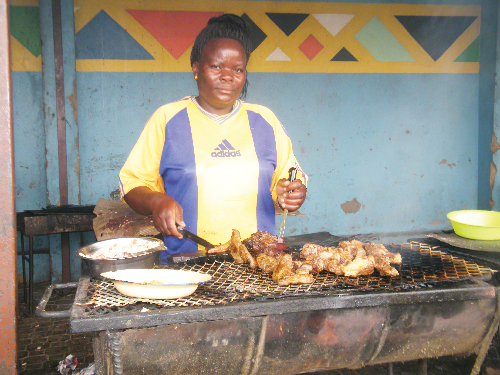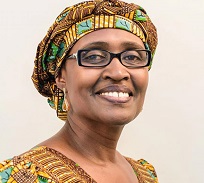
It is up to all Namibians to fix the future, starting today

By Josef Kefas Sheehama.
The Municipality of Windhoek is planning to formulate a new policy to prohibit home shops from operating in residential areas.
This decision shall affect more than 820 registered small-scale shops across the city. In our highly connected society today, few persons are rarely expert in enough to make decisions without having to consult those who will be affected. Before such sweeping changes are brought about though, there has to be an understanding of the purpose for such changes and whether these are indeed in the interest of affected parties and financial stability. It has to go through a lot of discussion and dialogue. This seemingly indecisive posture of the City of Windhoek makes people think that they are not serious in their governance.
There is an urgent need to focus on those aspects of leadership to demand that employees who serve in municipalities will be appointed based on merit and the spirit to serve the people. Local authorities must return to the fundamental reason for their existence to realize their social, economic and infrastructure development with the ultimate goal of making Namibia a prosperous country.
The decision to shut down home shops portrays the City of Windhoek as living in the past. Living in the past in the sense that they still believe that they are operating under the old dispensation where, because they are a governing body, they do not need public consultation or consulting other stakeholders when they want to come out with a reform.
If we want to continue with our lack of consultation and engagement, the flip flop will become the order of the day and nothing can get done. We cannot allow people to marginalize people or victimize them, especially the weak and helpless ones. We need to protect and uphold human rights at all times. Without them, there would be no long-lasting peace, no justice nor hope for a better and more prosperous Namibia. The City of Windhoek failed to create formal employment and a conducive environment for SMEs to thrive. It is inhuman to take someone’s bread. We cannot allow our brothers and sisters to die of hunger while other people are eating in hotels.
Therefore, we shall challenge this new proposed policy. Inequality in its various forms is an issue that affects all humans. Inequality is not only a threat to economic and social rights, it impedes the advancement of all rights. To accelerate progress, deepen democracy and build a more inclusive society, Namibia must translate political emancipation into economic wellbeing for all. It is up to all Namibians to fix the future, starting today. It is our responsibility to hold the municipality accountable by bringing our strategies to accelerate future economic growth.
Furthermore, the prominence of the informal sector cannot be downplayed as almost all persons who cannot find placements within the formal sectors of the economy find solace in the informal sector. The informal sector is a very much neglected sector as it seldom accounts for a pride of place in government planning for the overall economy.
This may be due to a myriad of factors such as the unregistered and unregulated nature of most businesses in the informal sector. Given the role of the informal sector in the economy, the government should begin to take more than a simple look at the informal sector with a view of enacting policies that will synergize the informal and formal sectors to unleash the vast potential of the Namibian economy since activities in both sectors of the economy are not mutually exclusive. A massive drive to register and have a data base of all businesses in the informal sector can also be carried out to ascertain the number and needs of the operators in the informal sector.
Moreover, the compelling reason why the municipality should pay attention to the informal economy is that this sector provides opportunities to the most vulnerable sections of the poorest, mostly women and youth who happen to dominate this sector. The ionformal economy is associated with two major aspects. One is the growth of the economy and the other is related to poverty and inequality.
Most people prefer to get into the sector because it became an avenue for their survival. The most informal economy workers in this country are youth, the population majorly affected by our country’s unemployment rate. Street vendors, home shops, kapana vendors, domestic workers, wood carvers, men on the side of the roads, cattle herders, amongst others, are the major operators in the informal industry. The City of Windhoek must address the critical needs of the poorest and most marginalized as a matter of priority. The informal economy is the means of survival for many fellow Namibians. The unemployment situation in Namibia has deteriorated markedly over the years. It should be noted that this very high figure of unemployment probably includes a large part of underemployment.
In conclusion, it will be necessary to find out why and address any burning issues to create a healthy environment for all. For effectiveness, it will be necessary to ensure that all affected parties are involved right from the initial stages. During such discussions, the City must create an atmosphere that will encourage every affected person to freely participate and communicate his or her ideas or feelings.
Home shop owners want equality for all, equality where human rights thrive. If you were the one trapped in this pit, you would know what it’s like and you would want someone to feel compassion for you. Remember, deciding not to decide until more information is available is also a decision.













































